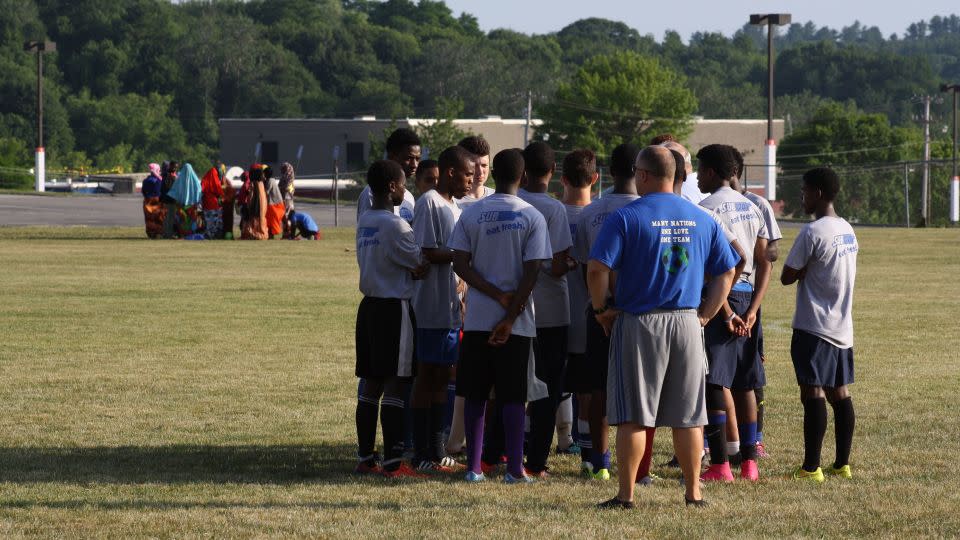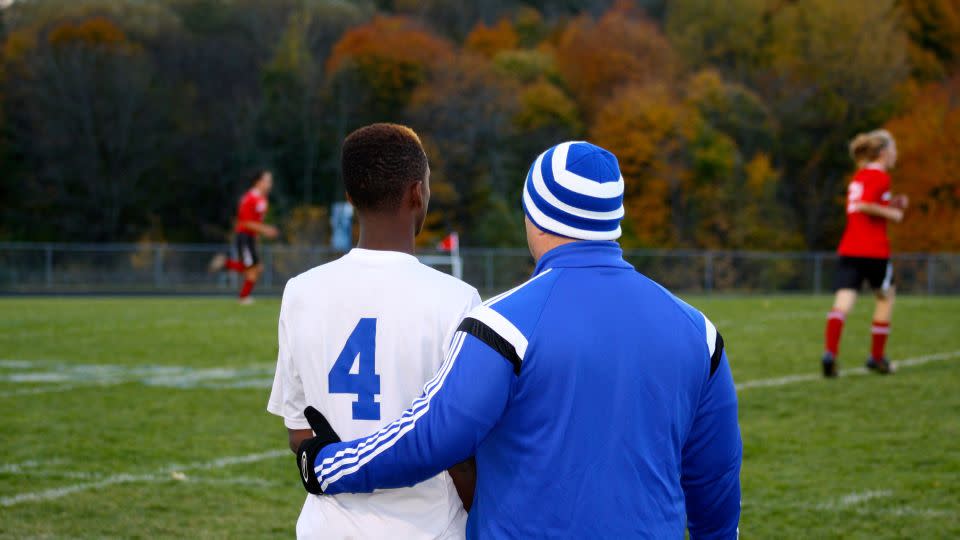Opinion: Lewiston is a community fighting for its light
Editor’s Note: Amy Bass (@bassab1) is professor of sport studies at Manhattanville College and the author of “One Goal: A Coach, a Team, and the Game That Brought a Divided Town Together” and “Not the Triumph but the Struggle: The 1968 Olympics and the Making of the Black Athlete,” among other titles. The views expressed here are solely hers. Read more opinion on CNN.
I thought about Lewiston, Maine, all day on Wednesday. The Lewiston High School boys soccer team, the Blue Devils, the center of my book “One Goal,” had a 5pm quarterfinal game against Farmington’s Mt. Blue on Lewiston’s Don Roux field. Since I couldn’t be there, I had to rely on the play-by-play results that the school’s athletic director, Jason Fuller, provides via X (formerly Twitter).

Of course I had no idea what was to follow that night, when at least 18 people were killed and over a dozen were injured in mass shootings at a local restaurant and bowling alley. No one could have known that was to come. During the day, I was only stressed about the game, worried because just last week, I was in Maine and saw the team lose, which they — recently ranked 14th in the nation — don’t do very often.
Lewiston, Maine’s second most-populous city, is a place that once saw its best days in the rearview mirror, a city that has fought hard to find its light. Its story is one of transition, from its former heyday as “Spindle City,” a textile center with factory jobs that brought an influx of French-speaking Canadian immigrants to its triple-decker Italianate-style apartment houses, to its increasingly global landscape, created in large part by the thousands of Somalis who migrated there at the turn of the 21st century, immigrants who carved space for themselves amongst Quebecois culture.
In short? Lewiston is a hardscrabble hockey town that made room for soccer, a place that understands the meaning and worth of community and the work that goes into making a city into home.

I had been in town for a short residency at Bates College, my alma mater, the reason I first lived in Lewiston as a temporary resident. As always, I centered my trip around high school soccer, and purposely scheduled the visit around the “Battle of the Bridge” game — Lewiston versus Edward Little, which sits just across the Androscoggin River in Auburn, the other half of Maine’s twin cities, in southwest Maine, north of Portland.
New England never pays much attention to weather forecasts, so despite the best predictions otherwise, it poured. But I was there with Mike McGraw, the now-retired coach of Lewiston soccer who brought the team to its first state championship title in 2015 with a roster in which all but one of the starters was an African refugee. We climbed to the top of the bleachers, where McGraw used his own coat to wipe a spot dry for me. We enjoyed a passionate and action-packed match between the two rivals, a game made all the more fun because the players know each other so well, as soccer moves freely back and forth across the river, often transcending the mascots and colors that come with high school life.
Lewiston lost. But it was a delightful evening, seeing former players and friends who had come out to support the team, to support Dan Gish, who had taken the reins as head coach from McGraw a few years ago, to support the game, and — most importantly — to support the community. The evening finished over a few pitchers of beer at the Blue Goose, a Lewiston institution in the middle of downtown where McGraw has held court since his 21st birthday in 1970.

Wednesday’s game was a different story in every way. On the pitch, a tense, scoreless game under a fading cotton candy sky went into overtime, until Mohammed Gabow got his head on captain Obed Antonio’s corner kick to give the Blue Devils the 1-0 win. That victory sent them to the semifinals, a home game scheduled for this Saturday at 2pm
It felt good. But then as news bulletins began to emerge about a shooting spree in Lewiston, everything changed.
“We went from a playoff overtime win to realizing what really matters in life,” Gish told me Thursday morning. “My wife [the principal at Geiger Elementary School in Lewiston] called me as she was going home from parent teacher conferences; she was stopped immediately by an officer and told to get out of there fast. I was thinking about going to watch the rest of the Edward Little game but instead got home to my family. Checked on my mother. Texted my captains and coaches to make sure they were okay.”
Edward Little’s quarterfinal game, tied 2-2 with Topsham’s Mount Ararat High School, was suspended before overtime began, county officials’ shelter in place and lockdown orders sending folks home.
“The more time goes on, we realize the connections we have to the people who lost their lives,” Gish told me. “I want to see my soccer family and give them a big hug and tell them it’s going to be okay. We have so much to play for.”
So, while Republican Rep. Lauren Boebert might send her prayers to (a misspelled)“Lewistown” and much needed debates about guns and the NRA and regulation and legislation undoubtedly will take place, likely to no avail, right now Lewiston needs to find its light amidst unspeakable darkness. We all know places like Lewiston, places where everyone is connected in some way, whether through soccer or something else. As my social media feeds changed from those marking themselves “safe” to those looking for information about a loved one who didn’t come home, I turned to McGraw, as always, for the last word on the community.
“I’ve read more than several posts from people that say that Lewiston is a good place to live,” he said. “The city is strong. People are looking out for each other.”
Go ya’ Big Blue.
For more CNN news and newsletters create an account at CNN.com

